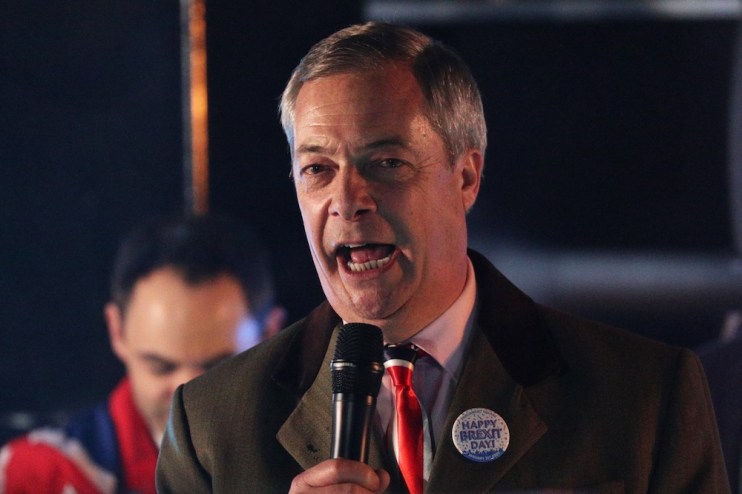The ‘debanking’ saga: What happened and where do the banks stand now?

UK banking rules are in the midst of a shake-up after a turbulent year which saw former Ukip leader Nigel Farage spark a crisis at one of Britain’s largest banks.
The so-called debanking row led to a clampdown on unfair closures of customer accounts.
The issue came to the fore after Mr Farage claimed Coutts, a high-net-worth bank owned by NatWest Group, moved to close his account because they disagreed with his political beliefs.
The row culminated in the resignation of former NatWest chief executive Alison Rose, who admitted to a “serious error of judgment” when she discussed Mr Farage’s relationship with Coutts with a BBC journalist.
NatWest appointed lawyers to conduct a review following the debacle. It admitted to “serious failings” in its treatment of the politician and issued an apology.
But the bank said the decision to shut down his account was lawful and had been made predominately for commercial reasons.
It also said the investigation found no evidence of discrimination at Coutts.
Meanwhile, the Government has intervened to change the law so that politicians are treated more leniently by banks.
Chancellor Jeremy Hunt said people should not be debanked for having the “wrong political views”.
It is already illegal for financial institutions to discriminate against customers on the basis of lawful freedom of expression.
But the changes mean UK politicians and their families must be treated as lower risk than those from overseas.
Furthermore, banks will be forced to explain and delay any decision to close an account under new rules which the Government says protects freedom of speech.
Customers will need to be given 90 days’ notice, increased from the existing two months, and must receive a “clear and tailored” explanation for the decision – except in cases where it is unlawful to do so.
In the wake of the saga, some of Britain’s largest banks maintained that they do not discriminate against customers, and that most account closures relate to cases involving financial crime such as fraud.
But the debacle raised questions over the level of trust customers have in their bank amid a time of greater financial uncertainty for many households.
Consumer group Fairer Finance’s latest poll of around 10,000 banking consumers found a slight increase in the number of customers who said they do not trust NatWest, rising from about 3.8% to 5.3% between February and August.
A tenth of the dissatisfied respondents said they were unhappy because they had heard bad stories about the bank in the news, up from 3% who said so in February.
Nevertheless, the survey revealed that overall trust in the banking sector was at the highest point since polling began eight years ago, with 80% of people saying they trusted their provider across current accounts, credit cards, mortgages, loans and savings accounts.
James Daley, the managing director of Fairer Finance, said: “The combination of sharply rising mortgage rates and much slower increases in savings rates has taken a toll on trust in the banking sector over the past year.
“The ongoing drip, drip of branch closures, and the Farage debanking scandal, have also had a negative impact on trust levels.”
He added: “Banks will have to handle this difficult time with care – not least because they are now bound by the FCA’s (Financial Conduct Authority) new Consumer Duty rules which require them to prove they are working to deliver good outcomes for their customers.”
PA Media – Anna Wise
